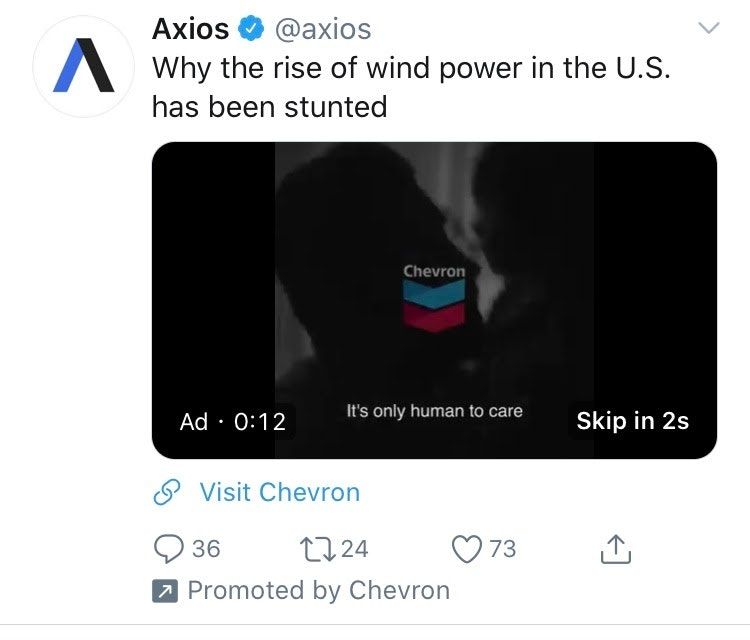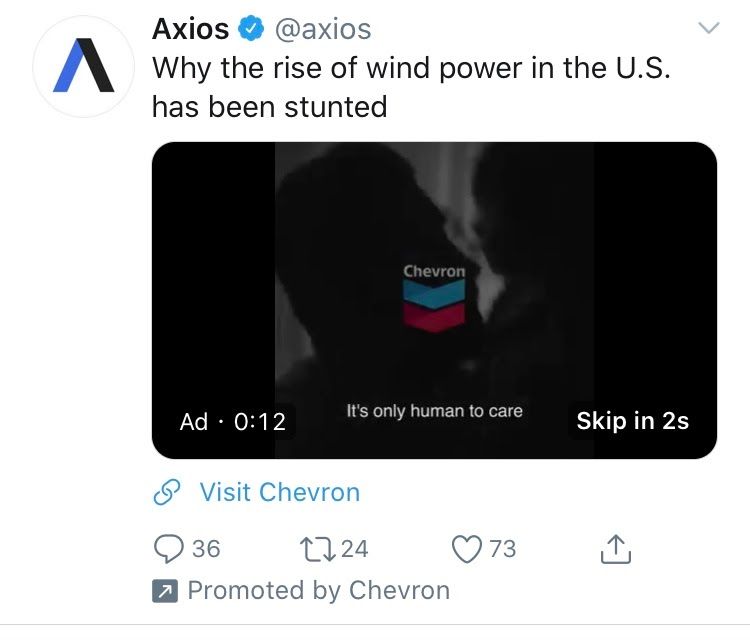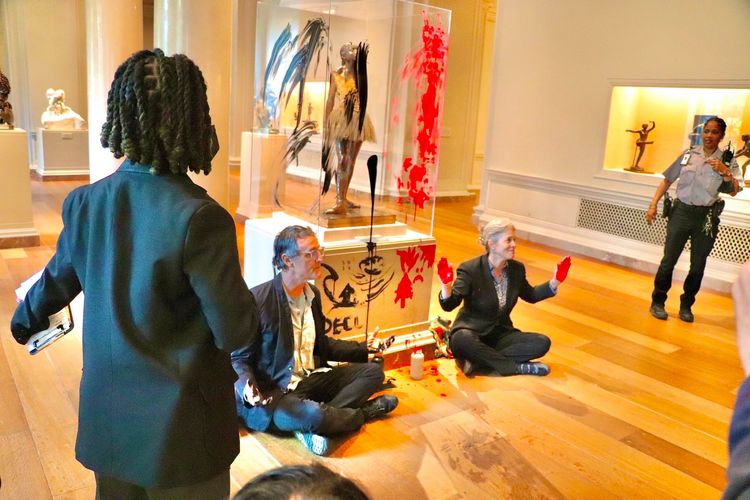Hot Take Scoop: Twitter and the Big, Oily Reach-Around

Oil companies are always talking out of both sides of their mouths. Now, at the same time that they're asking the government for bailout money, they’re pumping out new ad campaigns … and they've got some new strategies, too. One of those is to partner with media outlets to run quick ads at the beginning of videos these outlets post on Twitter.
You may have seen a Chevron ad playing in front of Axios videos on Twitter this week, for example. They stick the ad in the media outlet's video, then promote the tweet … a handy way around Twitter's political advertising policy—a reach-around, if you will.

Oil companies don't advertise a product—they're not trying to get you to go buy gas at Mobil instead of Chevron, or Shell instead of BP—they do what's called "issue advertising," selling people on the idea that they are generally good companies, that they do good in the world, that they're "on it" when it comes to climate change. It's greenwashing, mostly. And it's political as fuck.
That's why The Guardian banned fossil fuel ads earlier this year. Interim CEO Anna Bateson explained then that fossil fuel ads "are really only there to sort of shape perceptions and reputations of the companies," which made them different from every other type of advertising.
In late 2019, Twitter unveiled a policy meant to effectively ban political advertising. It was really meant to get rid of campaign advertising and who could argue with that? But of course, we know that's not the only form of political advertising. Pretty early on climate activists and journalists started to ask what the policy would mean for oil company ads.
When Twitter was questioned about this less-obvious form of political advertising, the company created additional guidelines. Then climate activists asked whether the new policy would effectively ban nonprofit and activist groups from the site, but leave oil companies alone because they're private companies that seem like "normal" advertisers. So the Twitter folks went back to the drawing board again and came out with a "cause-based advertising policy" that would enable advocacy groups to still post about various causes. It expressly forbade ads that "have the primary goal of driving political, judicial, legislative, or regulatory outcomes."
And then media outlets were like "hey what about us? We talk about political stuff sometimes in tweets that we want to promote," so Twitter came up with the exemption for News Publishers. Now here we are with three policies. Honestly, by this point I felt bad for whoever is in charge of these sorts of policies at Twitter because they just wanted to get rid of campaign ads.
Of course, oil companies being as slimy as they are, they've found a way around all of it. When I spotted the Chevron-Axios ad this week, it reminded me of similar tweets I'd seen come across my feed from other media publications, also promoted by oil companies. Then it clicked: Is this all to avoid Twitter's political content policy? So I asked Twitter.
And the answer is: Probably.
According to Twitter (yes, I spoke to a particular person, no I can't tell you who because that was the condition of him talking to me. Why? Who knows!): "These ads do not violate our policy. @Chevron and @axios are certified for cause-based advertising and can run ads that fall under that policy. @axios is also exempted as a News Publisher from the Political Content Policy and can include political references in their ads."
I'm still not sure how an ad touting Chevron's investments in "energy for America" that sets up a video all about how renewables are great, but there's just not enough of them to really power the world (a favorite fossil fuel talking point since renewables even became a thing) is not in violation of the cause-based policy that prohibits driving particular political, judicial, legislative, or regulatory outcomes—all oil ads violate that policy—but we'll just have to keep wondering about that.
Because when I followed up with more questions, Twitter said, "The content of the ad itself still has to comply with our policies - political and cause based."
Apparently if you wrap a piece of shit in a newspaper—or in this case an Axios video—it's not shit anymore. Maybe that only works if it’s oily enough. Who knew?





Only paid subscribers can comment.
Please subscribe or sign in to join the conversation.